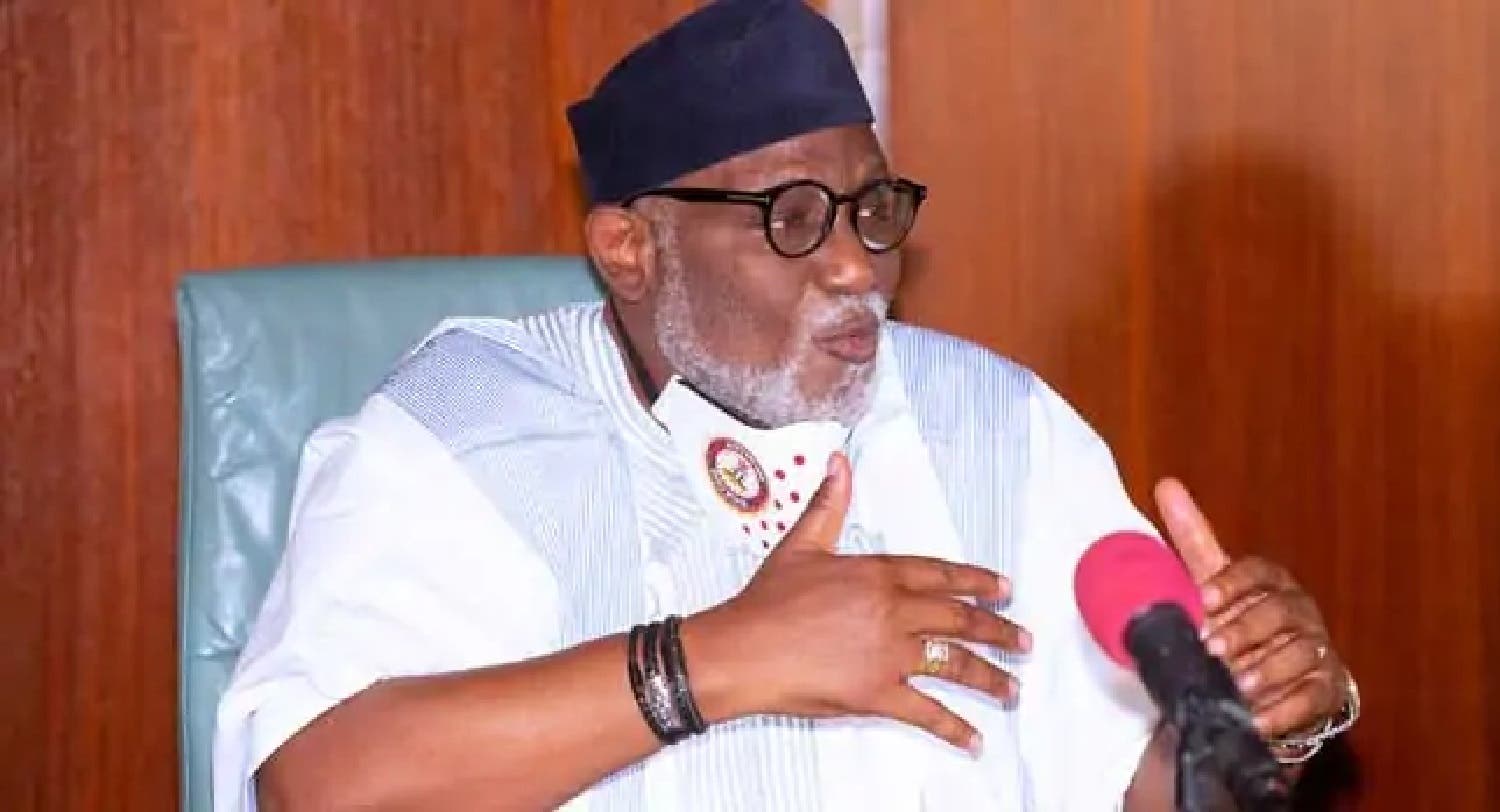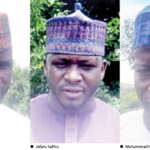It is hard to see how an unfortunate market accident at Shasha Market escalated into a deadly conflict over the weekend, unless one remembers the ethnicism and bigotry recently ignited in the South West by Governor Rotimi Akeredolu. The fire started smouldering weeks ago when Akeredolu gave all Fulani herders a one-week ultimatum to vacate Ondo State. Akeredolu must have known that his purported order is unconstitutional; he knew that the vast majority of Fulani herders across Nigeria simply wish to carry out their ancestral trade; he must also have known the national outrage his order would cause. But he made it anyway because he calculated a political benefit. He thought the best way to distract from his failed promises, including tackling insecurity, was to scapegoat the Fulani.
- Onyeama, embassy reveal how Zulum saved Nigerian medical student in Egypt
- Bode George asks Buhari to unite Nigerians
Akeredolu’s order was followed by a similar “quit notice” to every Fulani man or woman in the South West, this time by a gang leader called Sunday Igboho from Oyo State. It doesn’t take forensic investigation to see how this was inspired by Akeredolu. After his seven-day ultimatum had expired, Igboho took things a step further by attacking the palace of the Seriki Fulani of Oyo, burning his property and injuring his family. The fact that the Seriki Fulani lives in the city, not the forest, and that he only speaks Fulfulde and Yoruba as evidence of his ancestral links to Oyo were immaterial. For Igboho, the Seriki Fulani’s ‘crime’ was simple: to own several cars, a big house and live a good life, while being Fulani. Worse, this thug was widely hailed in the South West as a hero, and some diaspora Nigerians were reported to have started a crowdfunding campaign to support Igboho’s criminal endeavours.
So it is no surprise that a simple dispute between a Hausa wheelbarrow pusher and a Yoruba trader could lead to the carnage we saw in Ibadan last weekend. According BBC Hausa, 17 Hausas and several Yoruba were killed, dozens were injured and many shops and homes worth millions were razed, leaving hundreds of displaced persons. As this happened, irresponsible youths danced to Akeredolu’s war drum. Southern youths on social media justified the attack by blaming all northerners for Buhari’s shortcomings. Northern youths, also citing Buhari’s failure to bring past perpetrators to justice, used the same medium to call for revenge attacks on southerners living in the north. And Akeredolu was on national TV fuelling the fire he helped started by rationalising Igboho’s criminality – and his own order – as “a child of circumstance”.
As has now become customary – to the extent that “where is Buhari” trends on social media – Buhari was nowhere to be found. Aside two tweets containing the usual hollow promises and assurances, the president didn’t utter a sound. I do not know any other country that has to pressure, lobby and cajole its leader to speak whenever there is a national disaster. The combination of a couple of wild governors, a lifeless president and youths ready to be whipped into a frenzy can be a perfect storm. It may sound cliché to say Nigeria has never been so on the edge of a point of no return, but this country has hardly been on steeper precipice. We are dangerously dancing on the brink on a pitch-dark night. And our leader is deaf and dumb.
It is, therefore, a huge consolation that the Nigerian Governors’ Forum rose to fill the vacuum Buhari created. It sent four northern governors to Oyo State for discussions with the governor, to condole the affected community and to initiate measures to rebuild broken bonds. This is a laudable step, but the governors’ declaration that the conflict was not “tribal or ethnic”, but “the handiwork of miscreants who set out to loot, steal and cause mayhem” is misguided. I understand that the governors are trying to douse tensions and promote unity, but this will not be done by burying the truth.
The reality is that trust between northerners and southerners, Muslims and Christians – and Nigerians in general – has never been at a lower ebb. Part of the reason is frustration with government’s failure to tackle escalating criminality. Across the country, criminals are unleashing violence and lawlessness with impunity. While most Fulani are not kidnappers, most of the current crop of kidnappers are Fulani. This is a fact, even though their motivations are not ethnic, nor are they supported by the overwhelming majority of their kin.
But many victims, not understanding nor caring about the differences internal to the Fulani ethnic group (and why should they?) wonder whether President Buhari, a Fulani himself, is aiding them. In fact, Buhari’s inaction is leading to these dangerous conspiracy theories reaching even the highest authorities in the West, such as an unverified (and unverifiable) report submitted to the UK parliament. Yet even with his reputation being traduced in this way, Buhari persists in inaction, progressively souring the relationship between southern and northern fellow countrymen. Even the ancient fantastic relationship between Fulani and Hausas has begun to deteriorate.
The way forward is not to run away from the reality. It is to acknowledge that there is a huge problem and work together to confront it. The first step is for the Buhari administration to step up its efforts by the designating and treating the so-called “bandits” as the terrorists that they are. How on earth can you justify labelling far less dangerous groups “terrorists”, but not the “bandits” who have killed at least 9,000 innocent Nigerians in the past decade in the northwest alone? On their part, Fulani leaders and organisations need to do more in helping authorities fish out the bad apples among them. The fact that it was Miyetti Allah’s intervention that led to the release of 344 Kankara boys last December shows that the Fulani socio-political group has some leverage over these criminal elements. They can and should do more to salvage Nigeria and redeem the good image of their tribe. Finally, the Akeredolus of this world must stop or be stopped from fanning the embers of violence for parochial political ends. If he and those like him value the country they serve, they would seek peace, not division.

 Join Daily Trust WhatsApp Community For Quick Access To News and Happenings Around You.
Join Daily Trust WhatsApp Community For Quick Access To News and Happenings Around You.


